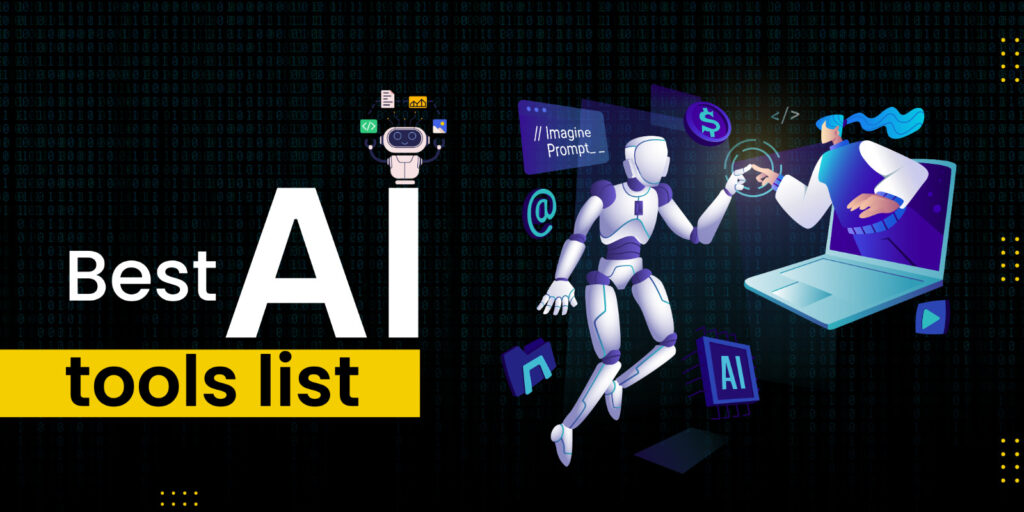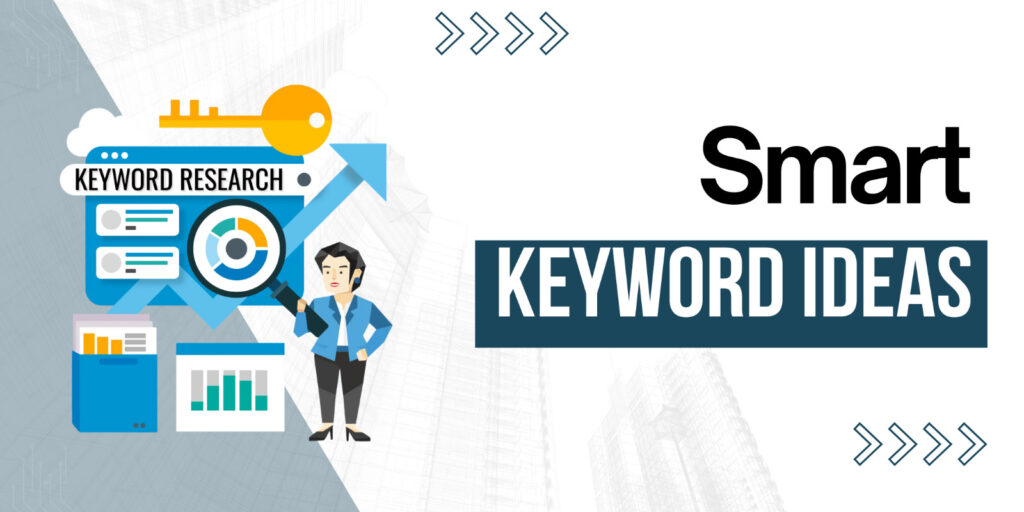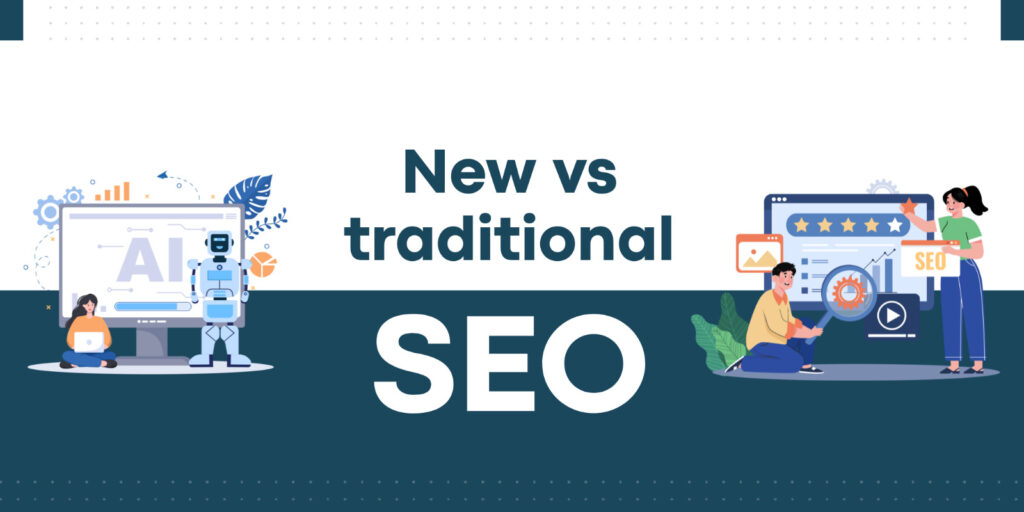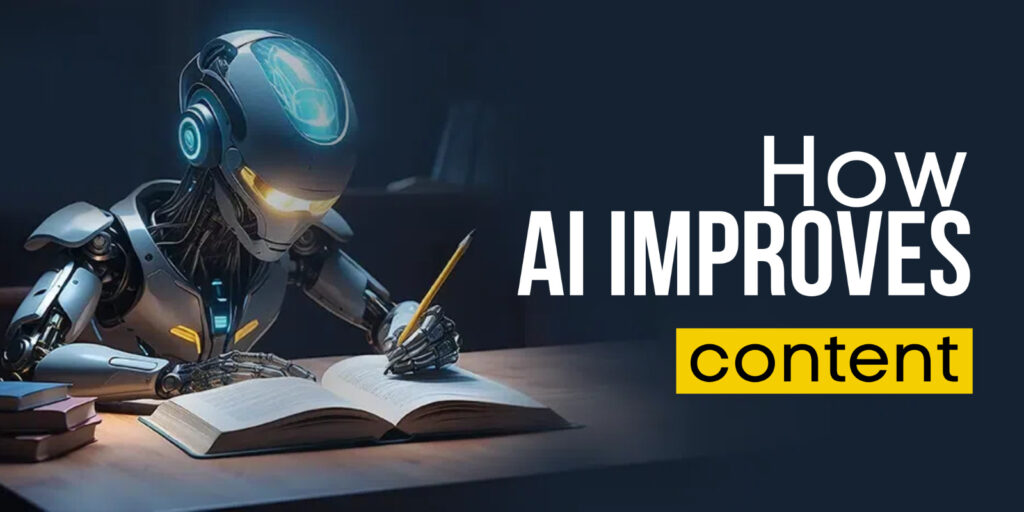Search engine optimization (SEO) has always been the backbone of digital marketing, helping businesses capture visibility, traffic, and conversions. But the landscape is changing rapidly. With search engines like Google evolving through AI-driven algorithms, the traditional ways of performing SEO—manual keyword research, on-page tweaks, and endless backlink strategies—are no longer enough. Enter AI-powered SEO: an intelligent, data-driven approach that reshapes how content is optimized, ranked, and consumed.
At Creative Click, a 360° digital marketing agency, we believe AI isn’t replacing SEO specialists—it’s empowering them. By leveraging AI SEO tools, marketers and businesses can scale optimization, identify opportunities faster, and deliver smarter content strategies that rank better on Google.
In this blog, we’ll walk through how AI is transforming SEO, highlight the best tools available, and explore how businesses—from bloggers to global brands—can harness the power of AI for search engine success.
How to Use AI for SEO Optimization
The first question marketers ask is: How exactly can AI improve SEO work? The answer lies in AI’s ability to process massive amounts of data, analyze patterns, and uncover opportunities that would take humans days—or even weeks—to identify.
Here are key ways AI can be used for SEO:
- Smarter Keyword Research: AI-based software uses natural language processing (NLP) to interpret search intent, long-tail keyword variations, and semantic connections that traditional tools miss. Instead of just “best smartphones,” AI identifies “why is iPhone 15 worth buying” or “affordable Android phone with best camera.”
- Competitor Analysis in Real Time: AI compares your content with competitors and highlights actionable gaps—keywords they rank for that you don’t, backlinks you could target, or technical issues holding your page back.
- Topic Clustering: Rather than thinking of keywords in isolation, AI builds topic clusters to align with Google’s evolving preference for contextual authority. For instance, if your site sells fitness gear, AI won’t just optimize for “buy dumbbells online” but also topics like workout tips, strength training guides, and health benefits.
- Automated Content Briefs: AI tools can generate content outlines, suggest ideal word counts, monitor readability, and guide writers to create search-friendly, user-first content.
- Real-Time On-Page Suggestions: As you write, AI platforms analyze keyword placement, meta descriptions, heading distribution, and even tone, giving instant SEO health checks.
By blending these practices, AI ensures that SEO isn’t guesswork—it’s strategic, measurable, and laser-focused on user intent.

Best AI SEO Tools for Bloggers
For bloggers, ranking on Google is often the difference between building an audience or staying invisible. While traditional SEO plugins help to some extent, AI-powered SEO tools allow bloggers to play on the same field as big websites.
Some of the best AI SEO platforms for bloggers include:
- Surfer SEO: An industry favorite, Surfer SEO helps you create optimized blog content by analyzing SERPs (search engine results pages) and showing exactly how long your post should be, which keywords to include, and how to structure your content.
- GrowthBar: Tailored for marketers and bloggers, it provides AI-generated blog outlines, keyword research, and even lets you write SEO-optimized articles directly within the platform.
- MarketMuse: Perfect for content strategists, MarketMuse maps out topic clusters, identifies authority-building opportunities, and suggests comprehensive coverage for competitive niches.
- SEMRush & Ahrefs with AI Features: These classic SEO platforms now integrate AI-powered keyword and competitor analysis, making them indispensable for bloggers looking to go beyond basic optimization.
- Frase.io: A powerful AI content optimization tool that focuses on user intent. It identifies the types of questions an audience is asking and guides you to answer them effectively within your content.
For bloggers, these tools act almost like a virtual SEO assistant, making sure every post is tuned to match what Google and readers want.

AI-Powered Content Optimization for Google Rankings
Gone are the days when keyword stuffing could bring visibility. Today, content relevance, intent alignment, and contextual authority are what drive rankings—and AI excels at helping marketers achieve just that.
Here’s how AI-driven content optimization ensures higher Google rankings:
- Natural Language Understanding (NLU): Google’s BERT and MUM updates focus on interpreting context. AI SEO tools analyze your writing style and help you phrase content in a way that Google’s algorithms understand and reward.
- Semantic Search Optimization: By mapping synonyms, related queries, and user intent, AI helps ensure your content answers the broader scope of what users are actually searching for.
- Content Readability Enhancements: AI suggests sentence restructuring, active voice improvements, and tone adjustments that keep readers engaged (reducing bounce rates—an indirect ranking signal).
- Featured Snippet Targeting: By analyzing snippets Google currently displays, AI suggests structuring your content in FAQ-style, listicles, or short definitions that improve chances of being selected as “Position Zero.”
- Predictive Analytics for Future Rankings: Some advanced tools project how well your content will perform after changes—helping you refine strategy in advance rather than waiting for stagnant results.
At Creative Click, we’ve used AI-driven analysis to refine our client campaigns, consistently improving ranking positions while ensuring content remains original, useful, and aligned with brand values.
Can AI Improve On-Page SEO?
Absolutely. On-page SEO is where AI delivers some of its most tangible benefits. Elements like meta titles, image alt text, header tags, and internal linking are small but crucial ranking factors that often get overlooked.
With AI:
- Meta tag optimization becomes smarter, with AI suggesting high-performing variations.
- Content structuring is automated, ensuring the right balance of H1, H2, and H3 headings.
- Image SEO improves through automatically generated, keyword-relevant alt tags.
- Internal linking recommendations appear dynamically, ensuring that content is interlinked for authority flow.
- Content freshness is tracked with AI flagging outdated posts and suggesting updates to maintain ranking consistency.
On-page SEO is no longer a checklist you manually tick but a continuously optimized process powered by AI.
Future of AI in Search Engine Optimization
The future of SEO is inseparable from AI. With advancements in natural language processing, deep learning, and predictive analytics, the SEO industry is heading toward a landscape where:
- Search intent prediction will get sharper, making results even more personalized.
- Voice search optimization will grow, with AI understanding conversational queries better.
- Visual search advancements will allow people to find products and information using images rather than text.
- Automated SEO strategies might emerge, where businesses set goals (like “rank top 3 for local services”) and AI executes strategies with minimal human intervention.
- Content personalization at scale will become standard, as AI tailors website experiences for individual visitors.
While this might feel intimidating, the future is not about AI replacing SEO professionals but AI augmenting their abilities. Brands that embrace AI early will enjoy exponential advantages in visibility and customer engagement.

AI vs Traditional SEO: Which Works Better?
When one looks at the question of differences between traditional SEO and AI SEO, the biggest is that in keyword research. Traditionally, the emphasis would be on manual brainstorming of keywords, search volume analysis, and competitor input-the entire process would get drawn out. AI comes in to automate and add intelligence to the entire process: It finds not only primary keywords but also semantic variations and intention-based queries, which perhaps humans would miss. This shift ensures that marketers are optimizing for the way people really search now, especially in conversation-style searching.
Downstream-of-the-keyword research, on-page optimization has experienced great change with the advent of AI techniques. Traditional SEO, there are so many checklists and plugins to implement best practices, while AI tools recommend in real time the best optimizations: heading structures, internal linking strategies, meta descriptions. This method retains continuous evolution in optimization rather than being a one-and-done process and keeps the sites in sync with ever-changing search engine algorithms from its inception.
Content creation is another area of strength for AI. Conventional SEO content has been much more human-dependent, requiring hours of research and manual writing. With an AI-powered platform, marketers can get an outline, a first draft of the content, and suggestions for its optimization within minutes. AI does not replace good writers but speeds up workflows and ensures the material is immediately relevant, well-structured, and search-friendly.
When data analysis comes into play, other SEO methods are usually handled in spreadsheets, manual comparisons, and slow decision-making. Here, AI slashes that process by seconds-to-instant pattern recognition and gap analysis. Thus, marketers get actionable insights way quicker and can change direction dynamically, rather than having to wait weeks till they analyze campaign performance.
Another important benefit of AI-powered SEO is scalability. The size of the team typically limits traditional SEO efforts, making it challenging to effectively optimize content over hundreds of pages. By easily scaling optimization efforts, AI breaks down this barrier and enables the application of SEO corrections and enhancements across whole websites with little assistance from humans.
Lastly, AI drastically changes SEO in terms of accuracy. Conventional methods frequently rely on human intuition and prior knowledge, which can occasionally result in mistakes or lost opportunities. However, AI thrives on predictive accuracy, utilizing massive data sets to predict the most effective techniques. This enhances rather than diminishes the human function. The most effective SEO comes from combining AI’s precision with human creativity, empathy, and storytelling—ensuring that rankings improve while content stays relatable and authentic.
AI SEO Tools for Small Businesses
For small businesses with limited budgets and teams, AI can actually level the playing field against bigger competitors. With the right mix of tools, even a local store can dominate rankings in their niche.
Affordable and effective AI SEO tools for small businesses include:
- RankIQ: Specially made for small businesses and bloggers, offering hand-picked keywords and AI-generated SEO briefs.
- Jasper (for SEO content writing): Helps generate quick, optimized blog posts, social captions, or product descriptions.
- Surfer SEO lite plans: Affordable and highly precise page optimization.
- Pictory.ai & Lumen5 (for video SEO): AI that helps repurpose content into short videos optimized for YouTube rankings.
- ChatGPT for SEO support: While not a full SEO platform, ChatGPT can generate FAQs, meta tags, and schema markup suggestions quickly.
By adopting even one or two of these, small businesses can execute SEO campaigns that once required large digital marketing budgets—making AI a perfect equalizer in online visibility.
Final Thoughts
AI-powered SEO is not a futuristic concept anymore—it is today’s competitive advantage. Whether you’re a solo blogger or a global brand, the ability to combine AI tools with human creativity is what will decide who ranks at the top of Google.
At Creative Click, we integrate AI-driven strategies across our digital marketing services—from multilingual content creation to on-page optimizations—ensuring our clients not only achieve higher rankings but also connect with the right audiences meaningfully.
The key takeaway? AI doesn’t replace SEO—it redefines it. Brands that harness AI for SEO now will be the ones leading search visibility in the years ahead.

